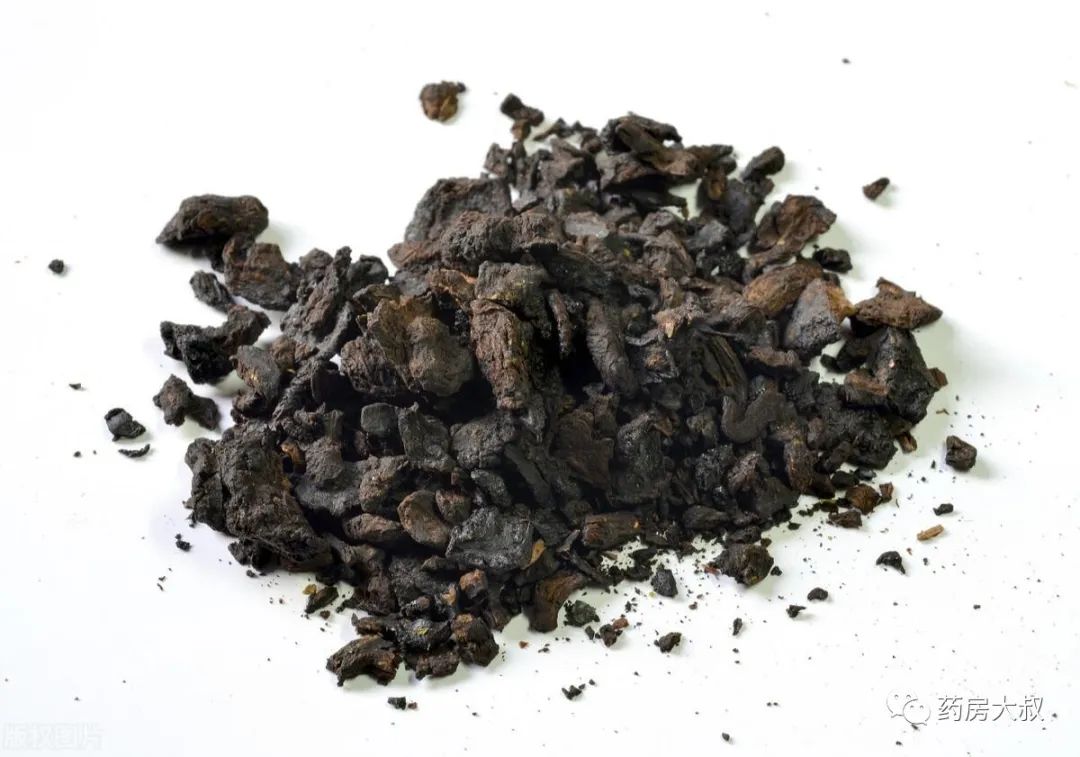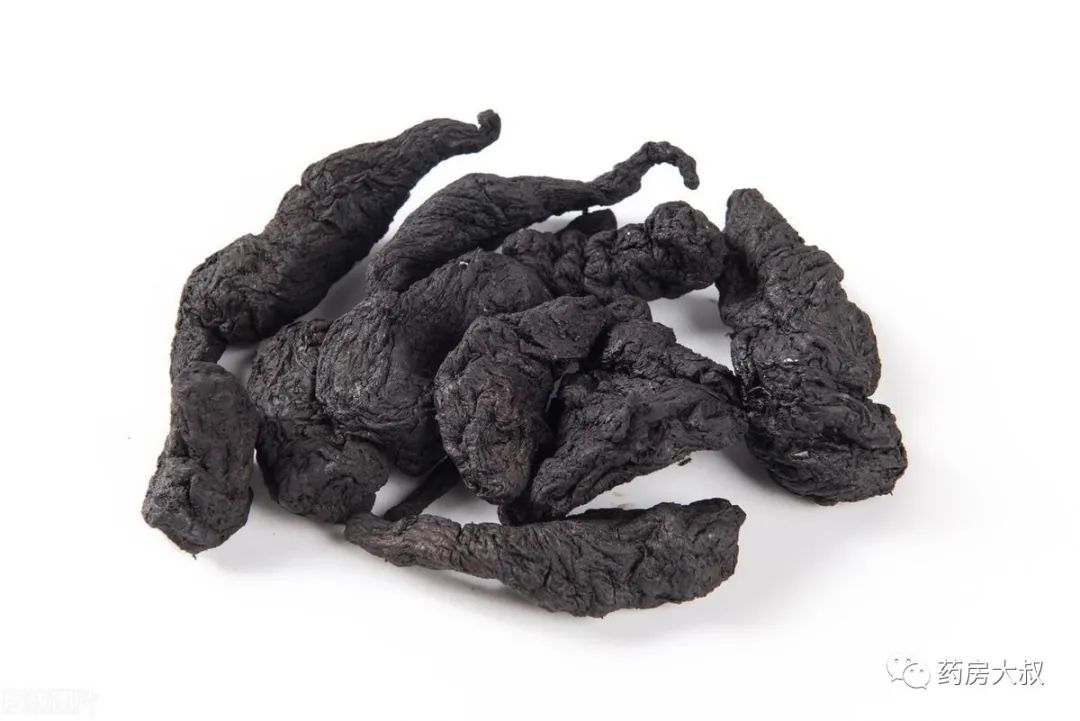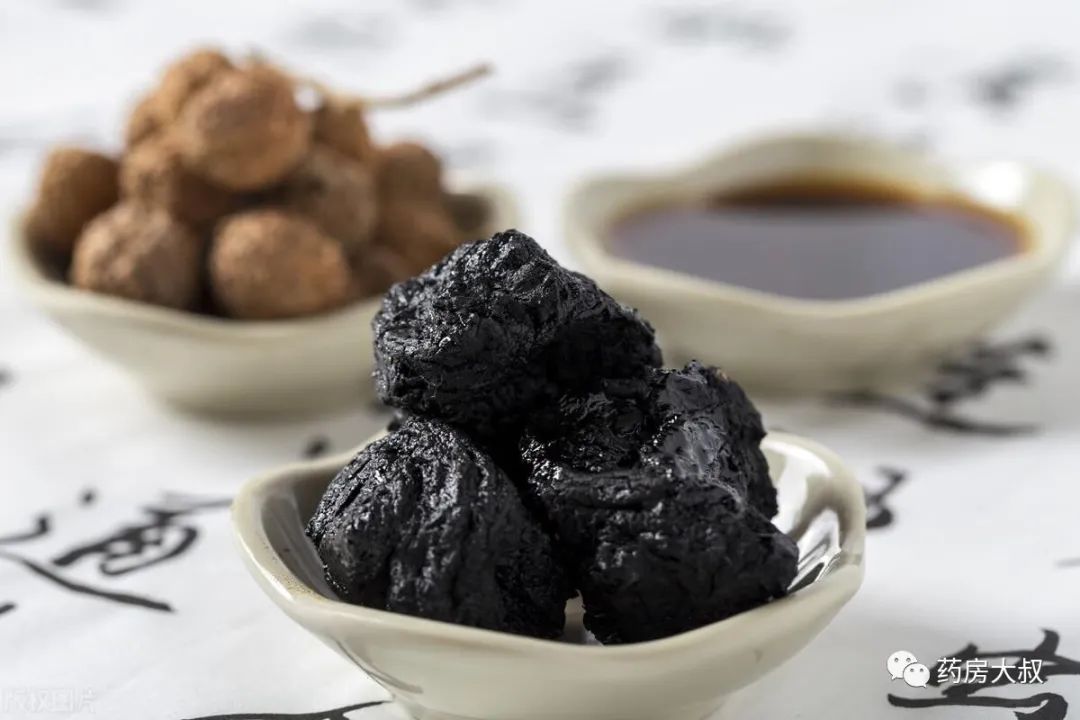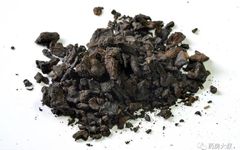Shudi Huang (熟地黄) is processed from Sheng Di Huang (生地黄), with its processing method documented in the “Pao Zhi Lun” by Lei Xun during the Southern and Northern Dynasties: “Harvest Sheng Di Huang, remove the white skin, steam it in a porcelain pot with a willow wood steamer, let it cool, mix with wine and steam again, then dry it out.” In the Jin and Yuan Dynasties, Zhang Yuansuo in “Zhen Zhu Nang” explicitly stated the efficacy of Shudi Huang: “Greatly nourishes blood deficiency, unblocks blood vessels, and benefits qi and strength.” Modern summaries have gradually recognized its effects in nourishing blood, enriching yin, and filling essence and marrow. Today, let’s discuss Shudi Huang.

Historically, Shudi Huang was believed to be made from the rhizome of the plant Rehmannia, but in recent years, it has been suggested that it is made from the tuber. This raises questions about whether past practitioners had a vague understanding of the concepts of rhizome and root, or if there has been a new discovery regarding the tuber of Rehmannia. This issue requires further experimental research and clinical exploration.
Traditional Chinese Medicine
Shudi Huang is the dried tuber of the Rehmannia plant, processed through specific methods. The preparation involves taking Sheng Di Huang, stewing it with wine until the wine is absorbed, then drying it until the outer skin is slightly dry, cutting it into thick slices or blocks, and then drying it completely; or steaming it with wine until it becomes black and shiny, then drying it to about 80% moisture, cutting it into thick slices or blocks, and drying it completely. This herb has a faint aroma and a sweet taste. The best quality is characterized by a plump tuber, a black cross-section, and a sweet taste.
This herb is sweet in flavor and slightly warm in nature. It enters the liver and kidney meridians. It has the effects of nourishing blood, enriching yin, and filling essence and marrow.
Note: This herb has a sticky nature, which can hinder digestion. It should be avoided by those with qi stagnation, excessive phlegm, dampness, fullness, poor appetite, or loose stools. If used in large amounts for a long time, it is advisable to combine it with Chen Pi (陈皮) or Sha Ren (砂仁) to prevent it from being too cloying and affecting the stomach.

Rehmannia was first recorded in the “Shen Nong Ben Cao Jing”. The term “di” in Rehmannia comes from an ancient method of testing the herb. It is said that in ancient times, Rehmannia was used for dyeing. Shudi Huang has various names including Shugan Di Huang (熟干地黄), Da Shudi (大熟地), Shudi (熟地), and Huaiqing Shudi (怀庆熟地). Due to the various names for Rehmannia, it is also referred to as Bian (苄), as noted in “Er Ya Yi”: “The one that sinks is the most valuable, hence the character is written below.” Therefore, Shudi Huang is also known as Shubian (熟苄).
Fresh Di Huang, Sheng Di Huang, and Shudi Huang
Fresh Di Huang, Sheng Di Huang, and Shudi Huang can all nourish yin and generate fluids, treating symptoms of yin deficiency and fluid loss. The differences lie in their properties: Fresh Di Huang is sweet and bitter, very cold, and while its ability to nourish yin is weaker, it has less cloying nature, excelling in clearing heat and cooling blood, generating fluids and quenching thirst, often used for treating blood heat and yin deficiency with strong heat evil; Sheng Di Huang is sweet and cold, slightly less effective in clearing heat and cooling blood than Fresh Di Huang, but stronger in nourishing yin and generating fluids, also with less cloying nature, excelling in treating heat entering the blood and yin deficiency with heat; Shudi Huang is sweet and slightly warm, with a strong cloying nature, entering the liver and kidney, specifically nourishing blood and enriching yin, filling essence and marrow, excelling in treating blood deficiency and liver-kidney deficiency.

“Ben Cao Fa Hui”
Shudi Huang is sweet and bitter, with the sun-dried version being neutral and the fire-dried version being warm, and it is non-toxic.
Jie Gu states: Shudi Huang, when soaked in wine and steamed nine times, has a slightly warm nature, nourishing blood deficiency. It is essential for those with blood loss and deficiency. It is beneficial for black hair. Avoid with radish. “Zhu Zhi Mi Jue” states: It is warm in nature, with a bitter and sweet taste, thin in aroma and thick in flavor. It sinks and descends, representing yin. Its uses are fivefold: 1) Benefits kidney water and true yin; 2) Harmonizes postpartum blood and qi; 3) Alleviates abdominal pain; 4) Nourishes yin and subdues yang; 5) Strengthens the source of water. It is used externally and internally, soaked in wine.
Dong Yuan states: Fresh Di Huang is very cold and cools blood, while Shudi Huang is slightly warm and nourishes the kidneys. It is also stated that Shudi Huang, Dang Gui (当归), and Mu Dan Pi (牡丹皮) are the three herbs that harmonize blood, generate blood, and cool blood.
Hai Zang states: Sheng Di Huang treats heat in the hands and feet and bone steaming heat. It enters the hand and foot Shaoyin and Jueyin. It can benefit kidney water and cool blood. For those with a strong pulse, Sheng Di Huang is suitable. If the pulse is weak, then Shudi Huang is appropriate. The nine times steaming enhances its ability to nourish kidney essence. Zhang Zhongjing used Shudi Huang as the primary ingredient in the Ba Wei Wan, as it is the source of all life. The Si Wu Decoction, used to treat the organ that stores blood, also uses Shudi Huang as the monarch herb, as both are treated in the same way. Steaming and pounding should not involve iron utensils, as this can harm the kidneys. Chen Zangqi states: Steaming dry is warm and nourishing, while fresh is neutral and dispersing. “Ji Yao” states: Shudi Huang treats heat below the navel, which is a kidney meridian issue, and cannot be resolved without Rehmannia, as it nourishes the kidneys and is a yin-replenishing agent. It is suitable to add Dang Gui for a marrow-nourishing decoction.
Modern Pharmacology
Shudi Huang is a processed product of Sheng Di Huang, with chemical components similar to Sheng Di Huang, mainly containing phenylethanoid glycosides such as Rehmannioside; it also contains monosaccharides, amino acids, and vitamin A-like substances.
The water decoction of Shudi Huang can promote the recovery of red blood cells and hemoglobin in mice with blood loss anemia. The decoction has an antagonistic effect against dexamethasone’s suppression of the pituitary-adrenal cortex system and can promote the synthesis of adrenal cortex hormones; the alcohol extract can enhance immune function, promote blood coagulation, and have a cardiotonic effect. Additionally, this herb has effects in lowering blood sugar, preventing and treating osteoporosis, regulating immunity, anti-aging, anti-anxiety, and improving learning and memory.
Note: Some text and image resources in this article are sourced from the internet. The purpose of reprinting this article is to convey more information. If there are any errors in source attribution or infringement of your legal rights,
please immediately leave a message in the background to notify us. If the situation is verified,
we will delete it promptly and apologize to you.
Previous content is also wonderful:
The golden period for height growth, three to five years, is very useful, both regulating the spleen and stomach and promoting height growth.
How to help children grow taller? Regulating the spleen and stomach is key! Children’s spleen-strengthening growth paste helps children grow happily.
Weak immunity and frequent illness? A simple prescription teaches you to nourish the heart, lungs, liver, and kidneys, while also nourishing blood and darkening hair, enhancing immunity.
Sharing an effective external application for lumbar disc protrusion.
Waking up inexplicably at 1-3 AM? This indicates poor liver health; two herbal medicines can calm the mind and help you sleep until dawn.
Included in the collection #Nourishing the Kidneys
8
Previous articleNourishing the kidneys without nourishing the spleen is a futile joy; a certain Chinese patent medicine nourishes both spleen and kidneys, harmonizing liver and spleen.

